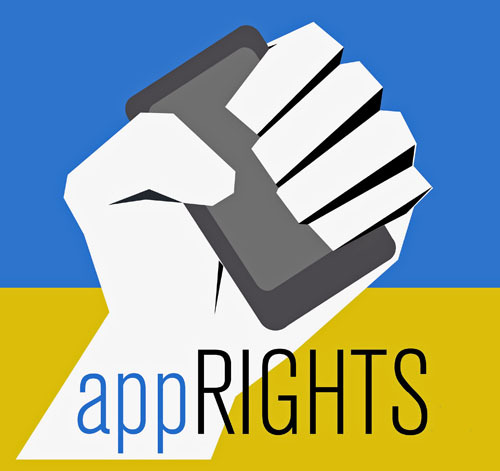Last week, I introduced a pair of bills to safeguard consumers' privacy: the Application Privacy, Protection and Security (APPS) Act of 2016 (H.R. 4517), a bill to increase consumer privacy on mobile devices; and the Data Broker Accountability and Transparency (Data) Act of 2016 (H.R. 4516), which would prohibit data brokers from using consumer data deceptively, empowering consumers to access and correct information, and opt-out of data use for marketing purposes.
I announced the introduction of these two bills to safeguard consumer privacy and ensure digital inclusion online from the House floor. [To view, click HERE]
Privacy is an issue that should unite us, not drive us apart. We have fully entered the era of big data, and consumers access the internet through mobile devices now more than ever. It's past time for our laws to reflect this reality through common-sense rules for data collection, transparency, and use.
The APPS Act: Providing Transparency, Choice, and Control on Mobile Devices
Smart phones and apps have tremendous benefits that enrich consumers and society. The mobile economy is also one of the fastest growing industries in recent memory, while big data is commonly referred to as the new oil.
But mobile apps also collect highly personal information like contact lists, photos, texts, location, and calendar items. Many times apps access data like messages or contacts without permission. Although many developers are responsible, the Pew Research Center has found that the vast majority of Americans want control over their personal information, but only 9% believe that they have this control.
In light of this overwhelming support for greater transparency, control, and choice over data collection, I re-introduced the bipartisan Application Privacy, Protection and Security (APPS) Act of 2016.
Every day, more companies are looking to mobile as the future of media. Bridging the 'digital divide' means requires building protections into the technologies that we use, and to do that, we need privacy legislation that works for us.
The APPS Act will boost consumer privacy on mobile devices by requiring app developers to maintain privacy policies, obtain consent from consumers before collecting data, and securely maintain the data that they collect. John Simpson, Privacy Project Director at Consumer Watchdog, referred to the APPS Act as "a significant and important step forward in protecting consumers' privacy." Susan Grant, Director of Consumer Protection at Consumer Federation of America, agrees, calling the APPS Act "a common-sense approach to an urgent problem - millions of consumers are using mobile applications for a host of activities, some very personal, and yet they lack basic rights with respect to the data that may be collected about them."
Much like collecting any other asset, collecting consumer data should be responsible and transparent. Apps should provide consumers with notice and choice regarding how data is collected, shared, and used, while protecting the security of data.
The Data Act: Empowering Consumers to Access, Correct, and Opt-Out of Big Data Collection and Use
Consumers are increasingly connected through smart devices, while data continues to drive business practices. The Federal Trade Commission (FTC) recently noted in a January report that this is "the era of big data."
Many have raised concerns, however, that this data may harm low-income and under-served communities, particularly minorities. As Wade Henderson, the president of the Leadership Conference on Civil and Human Rights, noted in 2014, "Big data has supercharged the potential for discrimination by corporations and the government in ways that victims don't even see." FTC Chairwoman Edith Ramirez has likewise observed that "the same analytic power that makes it easier to predict the outbreak of a virus, identify who is likely to suffer a heart attack, or improve the delivery of social services, also has the capacity to reinforce disadvantages faced by low-income and under-served communities," including price and customer service discrimination.
With these concerns in mind, it is critical that consumers---particularly low-income and minority populations---have access to the troves of data collected about them, the ability to correct false information, and the right opt-out of data collection for marketing purposes.
Consumers should have access to the volumes of personal data collected about them. And more importantly, we should all be able to correct false information before losing access to potential employment, insurance, housing, or credit opportunities.
The Data Act would bring big data out of the shadows, creating transparency and control for consumers over their personal data, and provide consumers with the tools to correct the record and minimize collection.
"Data brokers are one of the best-kept secrets from consumers," said Susan Grant, Director of Consumer Protection and Privacy at Consumer Federation of America. "CFA supports this legislation to ensure that consumers can easily see what kinds of information data brokers compile about them and exert reasonable control over its accuracy and use."
For more on the legislation or to join the online mobile privacy discussion: visit http://apprights.tumblr.com/.
